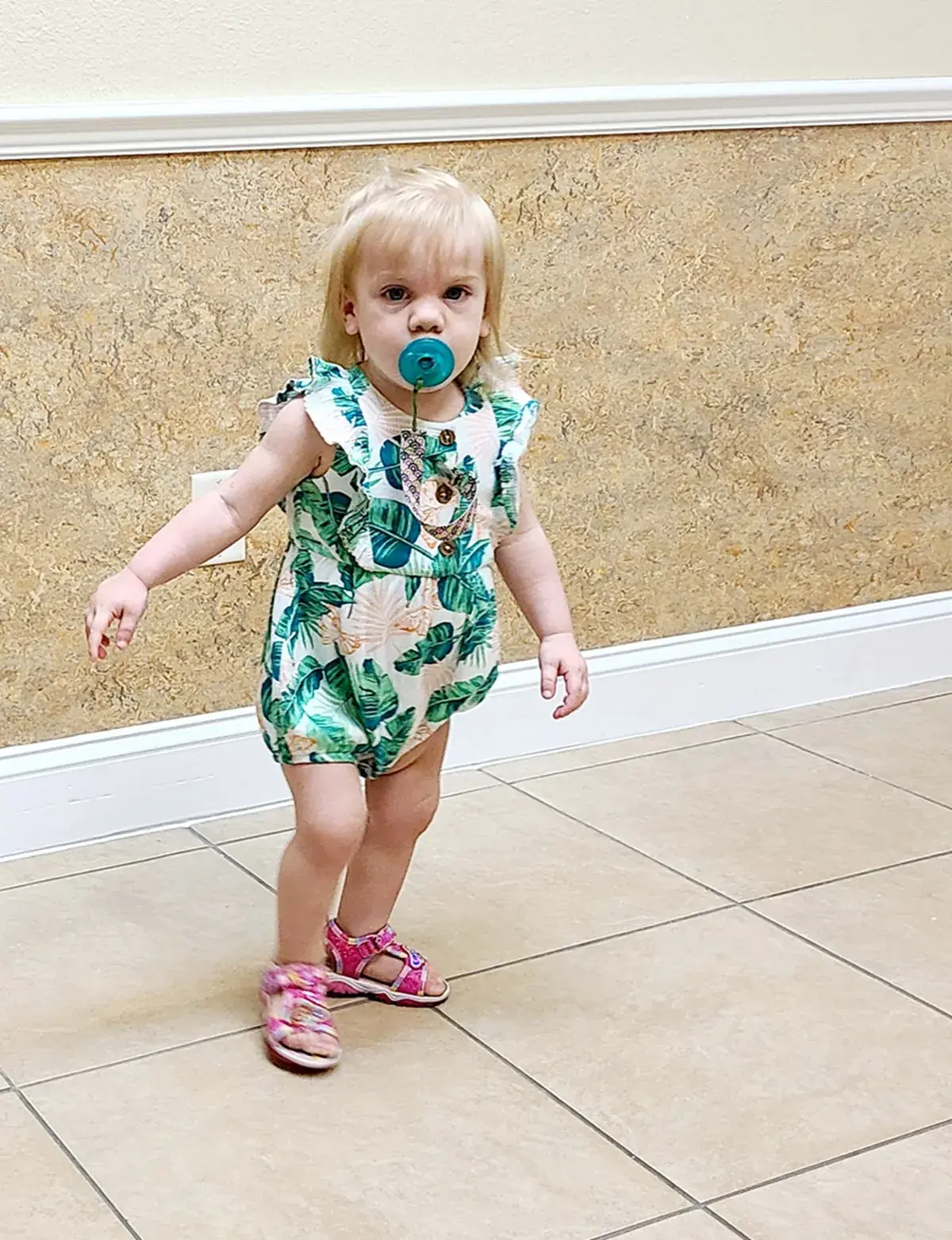Holding back tears, Christine Ulrich recalls how her daughter Veda once loved dancing, drawing and babbling. Now, she can no longer speak or even hold a crayon.
Three years ago, Veda was diagnosed with Sanfilippo syndrome, a rare and devastating neurodegenerative condition often referred to as ‘childhood dementia.’
The disease gradually takes away the skills children have learned—leading to seizures, movement difficulties and profound health challenges over time. Tragically, most children with the condition face a premature death.
“She has changed significantly since diagnosis,” Ulrich, 37, told Newsweek. “It’s hard to watch how quickly she has deteriorated.”
Losing Her Words
As a toddler, Veda would scribble all day while proudly reciting the names of her family members. Now, she is frustrated by her inability to communicate.
Ulrich, an ultrasound technician from Palm Coast, Florida, said her daughter is “regressing”. Mentally, she is now just around one year old.
“Veda used to ask questions like ‘what is that?’ and ‘what are we doing?’” Ulrich said. “But she can’t get the words out anymore; she tries to mimic sounds.”
These communication struggles have left Veda unhappy and uncomfortable much of the time. “She will be fine watching TV and then suddenly cry for hours,” Ulrich explained.

Understanding Sanfilippo Syndrome
Sanfilippo syndrome is one of the mucopolysaccharidosis (MPS) disorders, caused by enzyme deficiencies that lead to a buildup of glycosaminoglycan—a type of long sugar molecule—in the body.
This accumulation affects both physical and neurological health.
A key neurological feature of the syndrome is challenging behavior—including hyperactivity, attention difficulties and severe frustration.
Early Warning Signs
Up until 14 months old, Veda was developing like any other baby. She had learned to walk before her first birthday and was starting to talk.
But then her parents noticed that she was drinking excessively, was frequently sick with respiratory and ear infections, and had a growing appetite. Also, Ulrich said, “she’d drink a gallon of water a day. We were worried she was diabetic.”
A viral TikTok video shared to @valor_of_veda documents their journey shows how Veda’s parents were initially dismissed because “she didn’t look diabetic.”
After multiple tests ruled out diabetes and other conditions, doctors were left without answers.
“During this time, her talking dwindled down,” Ulrich recalled. “She went from trying to talk to stopping. We thought she might have autism and started speech therapy.”
A Devastating Diagnosis
On June 2, 2022, Ulrich came across a video of a little girl who looked just like Veda. That moment led to their discovery of Sanfilippo syndrome.
According to the Cure Sanfilippo Foundation, children with this disease often share distinct facial features—including a prominent forehead, thick eyebrows that may meet over time and full lips with a larger-than-average nose.
“My chest was tight and I was so upset when looking at the girl,” she recalled. “I showed my husband Jericho, 35, and he went pale.”
The family went to their pediatrician and were referred for genetic testing. Three months later, she was diagnosed with the condition that affects 1 in 70,000 live births.
No Cure Yet
Since the diagnosis, the Ulrich family has been working tirelessly to raise awareness and funds for a clinical trial. There is currently no approved treatment.
In June 2025, the U.S. Food and Drug Administration (FDA) issued a Complete Response Letter for UX111, a gene therapy for Sanfilippo syndrome type A, asking Ultragenyx Pharmaceutical Inc. to address manufacturing and facility issues—delaying potential approval until 2026.
Facing the Future
“I feel scared, sad and angry about the future,” Ulrich said through tears. “I am sad because I know my child will pass away very young, scared that I’m not going to be able to keep her comfortable.
“I am angry that she has to go through this. No child deserves to have such a cruel disease; she is a sweet little kid.
“I am terrified that I’m not going to be able to save her. It’s hard to take her to therapy to keep her skills, and no matter how hard she works, one day all the skills she has fought to keep—she will lose.”
Do you have a tip on a health story that Newsweek should be covering? Do you have a question about men’s reproductive health? Let us know via health@newsweek.com.
Reference
Escolar, M. L., Jones, S. A., Shapiro, E. G., Horovitz, D. D. G., Lampe, C., & Amartino, H. (2017). Practical management of behavioral problems in mucopolysaccharidoses disorders. Molecular Genetics and Metabolism, 122, 35–40. https://doi.org/10.1016/j.ymgme.2017.09.010
Read the full article here

